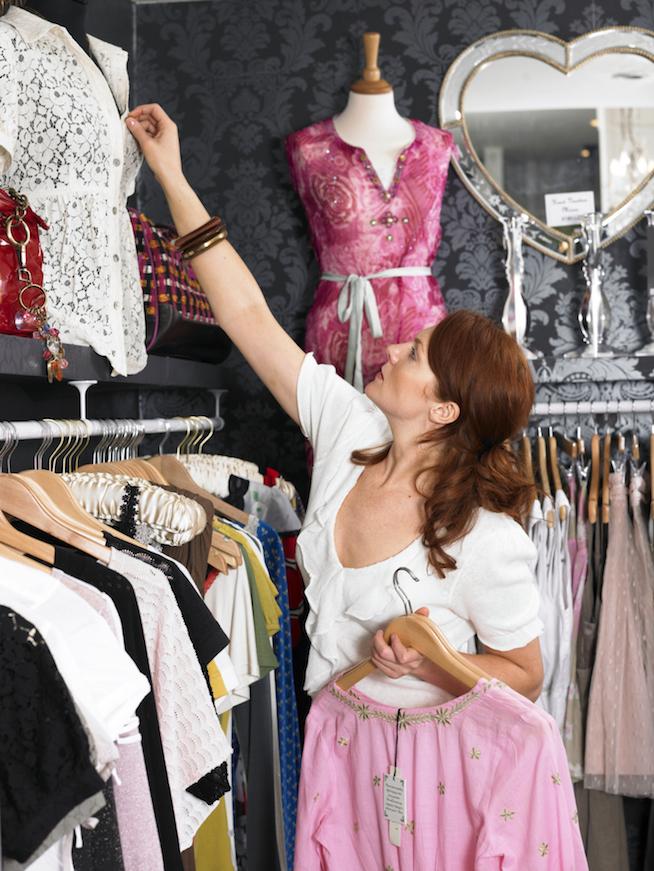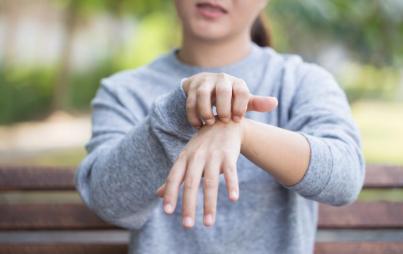
One person's 'plus size' is another person's 'perfect size.'
The more I ignored what anyone else had to say about an ideal body, the easier I found it to live in my own skin.
In my late 20s, a neuromuscular disease affected my ability to swallow normally, and I couldn’t eat enough to maintain a healthy weight. Every bite posed a choking hazard, and despite the fact that I would spend hours laboring to swallow meals, I continued to lose body mass. I was poorly nourished, and I looked it.
I struggled to maintain a positive view of my body when I could no longer recognize myself in the mirror, or when well-meaning but rude people would tell me “You look like you should eat something.” Loving a body that is sick — visibly so — is hard and imperfect work, and I found that I needed to avoid body-positive messages just as much as I avoided fashion magazines. I couldn’t escape the message that real women needed curves, and curves were something I couldn’t have.
I had to work particularly hard not to see the dreadful this is more attractive than this memes that juxtaposed well-lit photos of robust and hale-looking women with unflattering candid shots of skinnier women who looked an awful lot like me.
I unfriended people on Facebook when they repeatedly shared these images, I switched off the television whenever Dove commercials came on. The more I ignored what anyone else had to say about an ideal body, the easier I found it to live in my own skin. As it turned out, I minded more what other people thought about me than I minded my own shape. When I shut off others’ opinions, I felt fairly content.
When my health began to improve after a number of difficult and painful treatments, I was thrilled to finally eat again. Solid food, in all its textured glory, was a daily delight. I resolved never to deny myself the pleasure of a piece of cake, or to shy away from a second helping of food if I wanted it. I finally reached my ideal weight this fall, and I’m not exaggerating when I say that I took real joy in every moment of putting on much-needed padding.
Last week, I decided it was time to buy some new clothes — clothes that would fit my new, healthier body. I strolled into a store in a busy London shopping area and picked through gorgeous winter dresses, soft sweaters, and fine wool slacks, finding style after style that I wanted to try on. But as I looked through my options, I couldn’t find any of the items in my size — a UK size 12, the equivalent of a US size 8. I assumed that 12 must be a very popular size in England, and that I was late to the fashion party. All the other size-12 women must have scooped up the great styles already, right?
Wrong. As I worked my way through the store, striking out at rack after rack of clothing, I found myself in the plus-size department. And that’s where all the 12s were hanging.
At home in the US, size 8 dresses were comfortably in the middle of the standard-sized fashion lines. I’d never considered the idea that my new size, my truly healthy size, was considered plus. Extra. Excess. Something abnormal to be squirreled away shamefully in the back of the store. I felt myself flushing. I imagined the sales people were giving me smirking looks for thinking I could’ve sausaged myself into the nicer styles. As I walked past a full-length mirror and caught sight of myself, I thought I detected a fat roll around my stomach. Is that a muffin top? I wondered. And just like that, everything I thought I knew about my own body positivity unraveled.
I grabbed a few boxy, shapeless items from the plus-size line — a less appealing range of fashions that seemed meant for hiding inside — and headed home, wondering how my hard-won view of myself could have turned out to be so flimsy.
It’s not that I hadn’t worked to change my mindset, or that I hadn’t said all the things I was supposed to say about my self-worth. But it seems that I never truly stopped caring about what other people thought, or whether they were judging my worth based on their arbitrary standards of attractiveness. I’d simply shut off the fire hose of opinions, and it wasn’t enough. Sitting here in my new dress, unable to think of it as anything other than a size 12 dress, I know I have more work to do. I will have to do better than simply ignoring toxic messages — I have to stop believing them, too.







